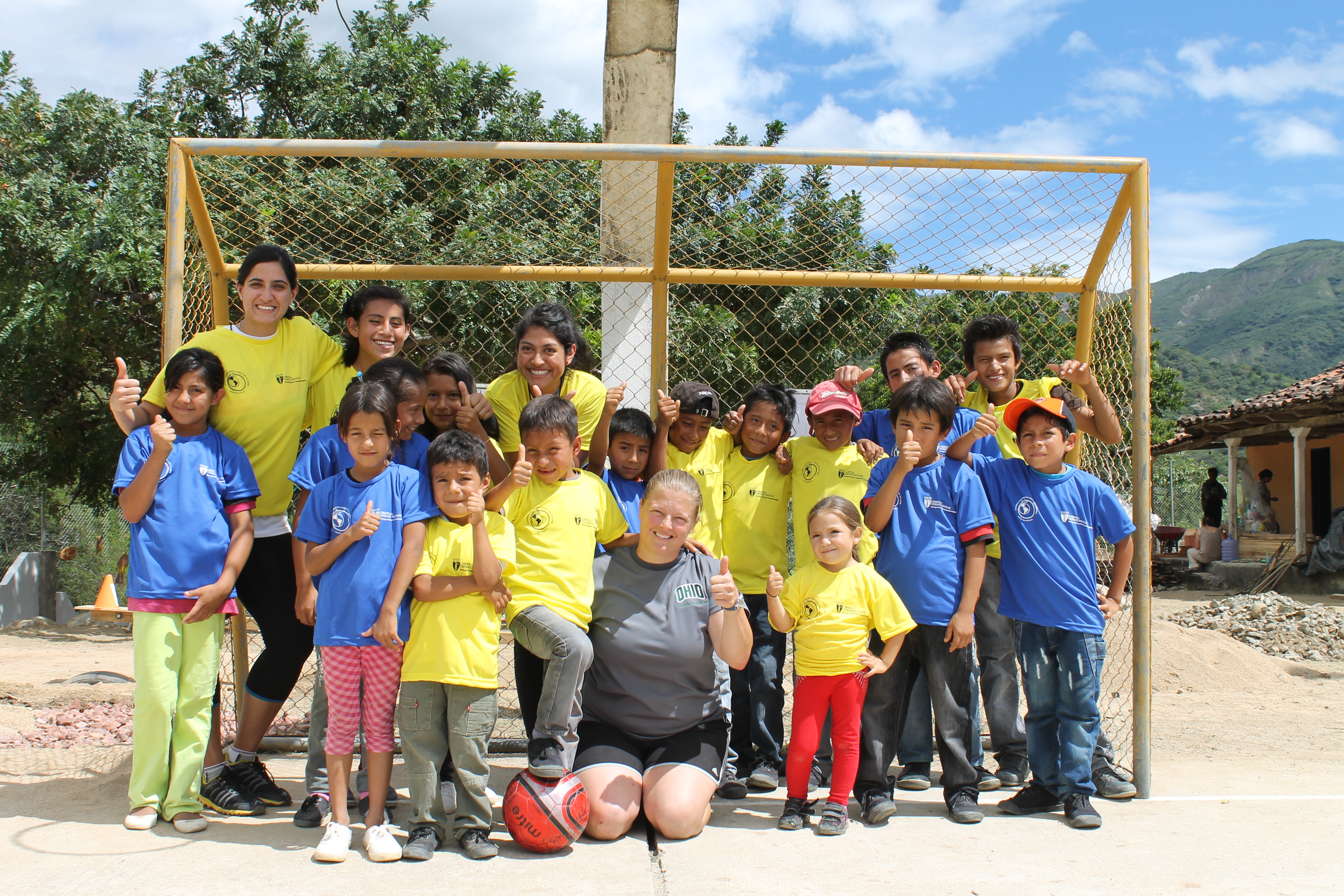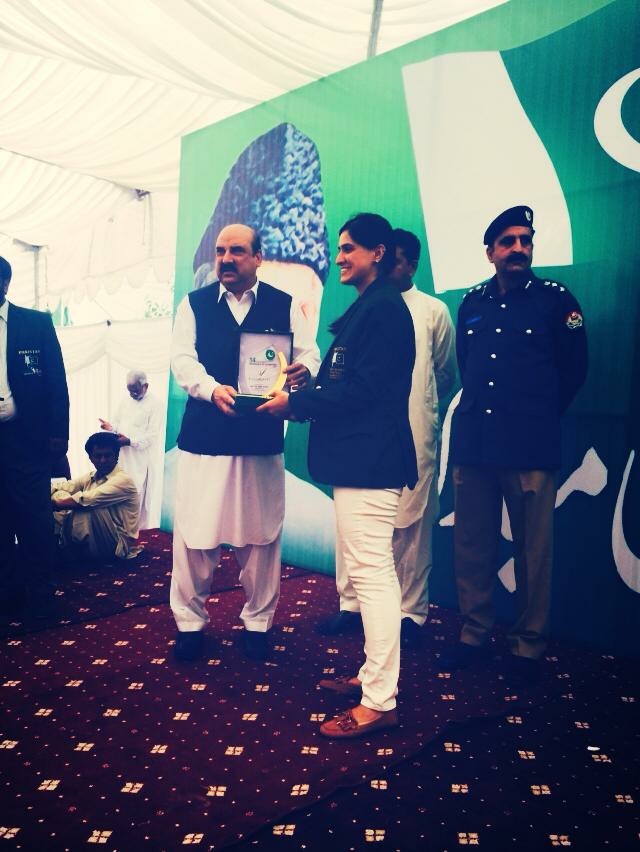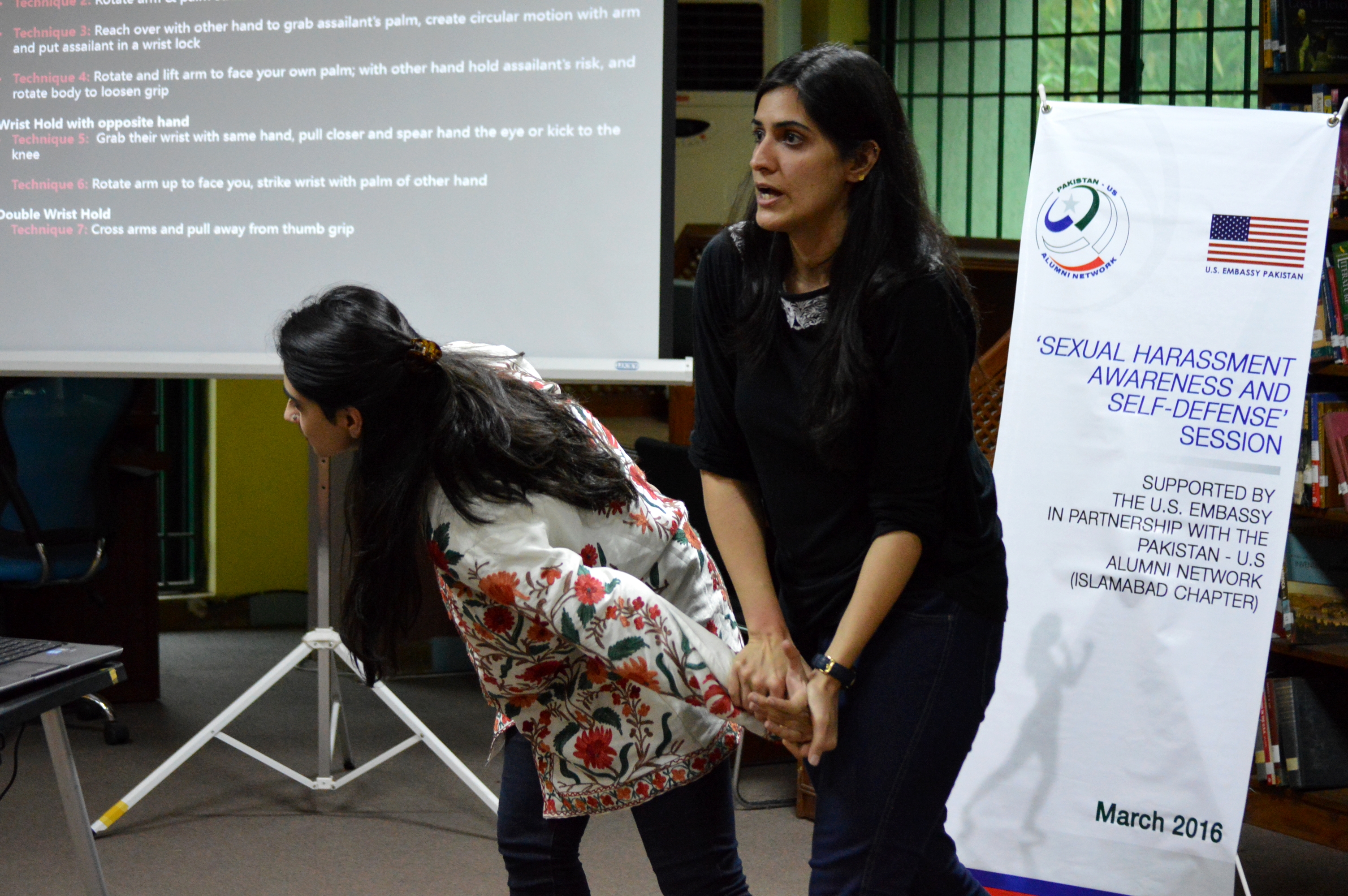Sana Mahmud is many things – soccer player and captain of Pakistan’s national Women’s Football Team, Fulbright fellow and graduate of Ohio University’s MA in International Development Studies program, and is currently working in the humanitarian sector where she addresses the needs of women during disaster situations. A relentless champion, is there anything Sana can’t do?
How would you describe your experience in the U.S.?
My experience in the U.S. – as cliché as it sounds – can only be described as being one of the best experiences of my life; a combination of fate, luck, and all the right things happening at the right time.
I landed in the school of my choice, studying what I love in a town that couldn’t feel more like home, and friends that I still talk to every single day. It is a huge part of how I define myself now.
It was also the first time I ever lived on my own for a long period of time. I had my own space, and a sense of independence and responsibility that only did more to help me grow as a person. The Fulbright is amazing because it gives you the right amount of comfort and support, while also offering you room to explore and learn on your own.
If people think this is just two years of graduate school, they couldn’t be more wrong. The Fulbright is a complete experience… if you are smart enough to make the best of the opportunities given to you.
What does the Fulbright grant represent to you?
The Fulbright grant represents an opportunity – a stepping stone in the right direction. It’s one of the many ways in which individuals can really unlock their true potential, moving a little closer to doing the great things they were destined for. I personally believe that the Fulbright is only what you make of it.
I always like to remind people that Fulbright is a merit (as opposed to need-based) scholarship. It celebrates people’s talents and gives them a platform to polish the skills they already know and have.
And because of its history, I think it instills people with their moral responsibility to give back. For instance, I myself never thought that I would ever want to teach, but after the Fulbright I find myself wanting to teach at a university. The Fulbright has made me realize (at whatever subconscious level) that I have an obligation to my country, which I am more than happy to fulfill.
Where are you now and how has your scholarship contributed to your present success?
I am currently working as a Training Officer at Muslim Aid, an international NGO based in U.K. that works in the humanitarian sector. I am working on their “Integration of Sexual and Reproductive Health in Disaster Risk Reduction” project, where I basically help organize capacity building trainings that address the particular needs of women and girls, that are further exacerbated during disaster situations. Besides that, I work part-time with Total Football, a local football facility, to further promote the sport especially among girls in the twin cities of Islamabad and Rawalpindi.
Other than that, the minute I returned, I rejoined my teams never having left them in the first place. I play football for the Young Rising Stars Female Football Club and basketball for the Islamabad team. I am always recruiting new players, and help coach junior players. I often volunteer to work with community and international organizations on any event that promotes sport and physical activities and have done a bunch of these since I have come back. It’s a very gratifying experience.
I was always doing some of these activities, but the Fulbright really helped them to a whole new level. My degree is a tool that I hold, that allows me to speak with confidence and authority about the things I wish to say and the best part is, people listen. As a Fulbright alumna, I think people have more faith in my abilities, and my belief in myself is reinforced.
The Fulbright has also helped me network with a huge group of talented individuals who I know will really help me in whatever I wish to pursue. We look out for each other, want the best for each other, and try in whatever way to support each other in the pursuit of their careers. Everyone is doing great work, and as part of the alumni community, I feel like I have a support system that I can reach out to.
What are you most passionate about in your work? What gets you excited every morning? What motivates you?
Everything that I do – with my team, with regards to sport, is motivation enough to get out of bed in the morning. It is so encouraging to see that there are so many more women and girls’ sports teams than there were when I was younger, and that makes me feel like the few of us were in some way able to change the landscape for female sport, making it easier for others to follow.
Also, if you pay close attention there is a lot of talent out there and I’m not just talking about sport. Everyone is making a difference in their own little way (especially within the Fulbright community), which inspires me to do more and be a better version of myself. And as a sportswoman, you never have to look too far for motivation; it’s something that comes from within. I’ve had to tap into it every time for a game, so being excited about life is easy!
How are you a game changer? Or how are you making a positive impact in your community (or the world)? How do you think your contribution to women’s sport is changing perceptions in Pakistan?
I have never considered myself a game changer. I do the things that I love, and my passion has at times been known to border on crazy, and hope that it has had some positive impact on those I work with or work for.
This is honestly a better question for my teammates / managers / coaches / employers… But I can say that I get invited to a lot of panel discussions to talk about sports for women, sports in schools, development through sports etc., or to serve as a chief guest or speaker at schools and universities. And after doing these events for a while, you wonder what’s the point? It’s honestly just a useless panel – did I ever pay attention to panel discussions as a child? No. What does it matter and why keep going? Is it just a pretentious charade?
And then I remind myself – every time I have ever addressed a group of students – I have had gotten the most unlikely and tremendous response:
- Parents come over to enroll their girls in my junior teams.
- Parents inquire about general tips for encouraging their daughters in sport.
- Junior amateur players come up and tell me they follow me, and that my story has inspired them in some way.
- Donors / organizations approach me and we have successfully conducted events for women in sport (great networking opportunity).
If at every event, I am able to get through to one person – one child, one girl, one organization – about how important sport is – it’s worth it. And that’s my little contribution, one step at a time. Maybe I am not a game changer, but I’m going to get them to play my game and that will be enough.
Finally, do you have a favorite Fulbright memory?
That’s an extremely difficult question. I LOVED my entire two years in the United States – from the times I crashed at the airport / bus stations, driving cross country from Ohio to Los Angeles, soaking in the sun in Puerto Rico, playing football on the all-male African team during our International Student Week’s World Cup, to watching my favorite WNBA player play live at Madison Square garden, riding a mechanical bull until I was thrown off, karaoke with my graduating class, designing and implementing my own football program in Ecuador with my university… and so much more. Words wouldn’t do [the experience] justice. Just talking about it is making me nostalgic!


